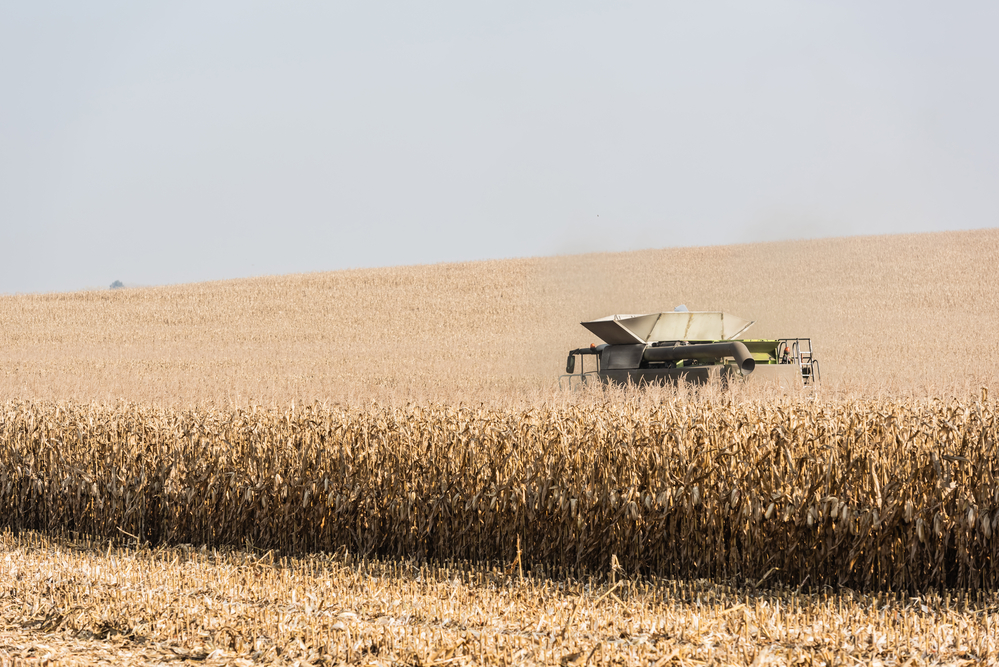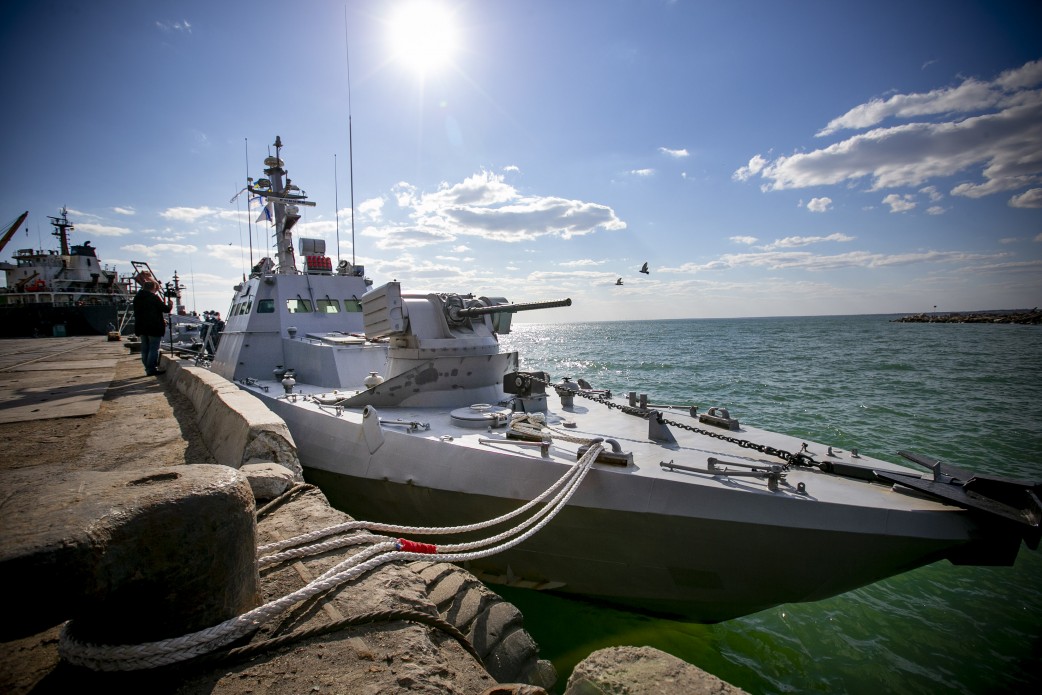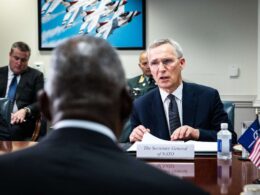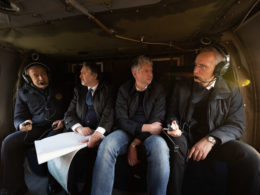“Ripple effects from the war in Ukraine have generated a severe cost-of-living crisis which no country or community can escape, UN Secretary-General Antonio Guterres has said. He stated this on Wednesday at a press conference dedicated to the presentation of a report on the conflict’s impacts on food security, energy, and financing. Earlier, he said the war in Ukraine is inflaming a three-dimensional global crisis – food, energy, and finance. The UN Secretary-General said that countries must act now to save lives and livelihoods.
"Three months into the Russian invasion of Ukraine, we face a new reality. For those on the ground, every day brings new bloodshed and suffering. And for people around the world together with the other crises, the war is threatening to unleash an unprecedented wave of hunger and destitution, leaving social and economic chaos in its wake," he said.
Furthermore, the crisis is amplifying the consequences of other challenges confronting countries, such as the climate emergency, the COVID-19 pandemic, and inequalities in resources for post-pandemic recovery.
According to the report, the number of severely food insecure people doubled from 135 million prior to the pandemic, to 276 million over just two years. The ripple effects of the war could push this number to 323 million.
An estimated 1.6 billion people in 94 countries are exposed to at least one dimension of the crisis, with around 1.2 billion living in “perfect-storm” countries severely vulnerable to all three dimensions.
The report calls for stabilizing record-high food and fuel prices, implementing social safety nets, and increasing financial support to developing countries.”
A war is always a human tragedy, and the war in Ukraine is no exception. The ripple effects of the conflict are extending human suffering far beyond its borders. The war, in all its dimensions, has exacerbated a global cost-of-living crisis unseen in at least a generation, compromising lives, livelihoods, and our aspirations for a better world by 2030.” These are not my words, but those of the UN report “Global impact of the war in Ukraine.” I have, however, pushed the message since 2018.
The report calls for the world to act. Quoting the United Nations Secretary-General, that “there is no answer to the cost-of-living crisis without an answer to the finance crisis”, the report suggests two lines of efforts. Firstly, to bring stability to global markets, reduce volatility and tackle the uncertainty of commodity prices and the rising cost of debt. There will be no effective solution to the food crisis without reintegrating Ukraine’s food production, as well as the food and fertilizer produced by the Russian Federation into world markets – despite the war. Secondly, to increase people and countries’ capacity to cope.
Being a UN report, it does not suggest the most effective measure: to end the war altogether. In my humble opinion, the war would end the moment NATO decides to intervene actively in Ukraine.
Recognizing the dramatic impact of the global ripple effects of the war, it is time to question the truthfulness of the claim that our political leaders are acting responsibly keeping the Alliance on the side-line and detached from the war in Ukraine. The scope of the increasingly more severe ripple effects of the war suggests otherwise.
The ripple effects of the war will increase the number of severely food insecure people to a staggering 323 million. An estimated 1.6 billion people in 94 countries are exposed to at least one dimension of the crisis, with around 1.2 billion living in “perfect-storm” countries severely vulnerable to all three dimensions (food, energy, and finance”.
This does not take into account the suffering of Ukrainians, the Russian atrocities and its attempt to destroy the Ukrainian nation, or the partial destruction of the biggest European country. Nor does it consider the potential political ramifications of more than 810 million Americans, Canadians, and Europeans holding governments responsible for the increasingly higher costs of living and a more volatile job market. Nor does it consider the long-term and broader consequences of the international security architecture being undermined and the world's biggest defense alliance being deterred by an authoritarian nuclear power.
Inaction is also an action. Inaction based on a theoretical risk, is in my opinion, utterly irresponsible in the face of very real, tangible, and devastating global consequences.
In military terms, shooting down the weapon carrier is far more effective than having to shoot down all the weapons launched from the platform. Ending the war is equally far more effective than dealing with its multiple ripple effects.
In the upcoming Madrid summit on 28-30 June, NATO needs to address its role as the defender of international rule of law, liberal democracies, and our shared values and principles. It needs to evaluate the causes for its inability to act according to its strategic concept and the ramifications of its failure to act when European security was threatened in February 2014.
It must address the Russian “fait accompli” strategy, using the threat of nuclear escalation as a means to secure freedom to use military force as an integrated part of its increasingly more aggressive foreign policy. “With an adversary willing and able to escalate a conventional conflict by (threatening with) the use of nuclear weapons, we must renew our 'nuclear culture', regain control of rhetoric, and plan and conduct exercises in which that escalation nuclear included.” NATO must develop its own “fait accompli” strategy. The alliance must evolve its use of military diplomacy and early forward deployment to deny Russia the possibility to challenge our willingness to engage militarily.
The Alliance should also address the fundamental challenges of nations not meeting the NATO target of 2% of GDP defense spending. The alliance needs to reestablish both the capacities as well as the political culture needed to respond resolutely to any Russian provocation, incident, episode, or transgression of international law. NATO must re-establish the deterrence that failed and that encouraged Russia to act with impunity across Europe, including involving the West in a hybrid war. It must increase readiness, resilience, and sustainability. The level of exercise must be intensified to both build and demonstrate warfighting skills.
The new security strategy must also address the evolving security challenges, including the militarization of the Arctic, challenges to freedom of navigation in the Black Sea, the Baltic Sea, the Barents Sea, and the Arctic, and threats to the cyber domain. The lessons identified by Ukraine must be introduced into the new strategy.
One of three essential core tasks listed in the NATO strategic concept is to “help manage developing crises that have the potential to affect Alliance security before they escalate into conflicts and to stop ongoing conflicts where they affect Alliance security.” The Alliance's failure to act when the war started on 20 February 2014 urgently needs to be addressed. As the war in Ukraine has demonstrated, the requirement for consensus enables the “weakest links” to limit NATO's response, undermining the credibility of all. It is time to ask if NATO is fit for its purpose. Unfortunately, the “weakest links” will stop this discussion from taking place.
Related:
- NATO: Collective Defense or Collective Denial?
- NATO’s defining moment is now or never
- NATO’s foot-dragging amid Russian atrocities in Ukraine is indefensible





